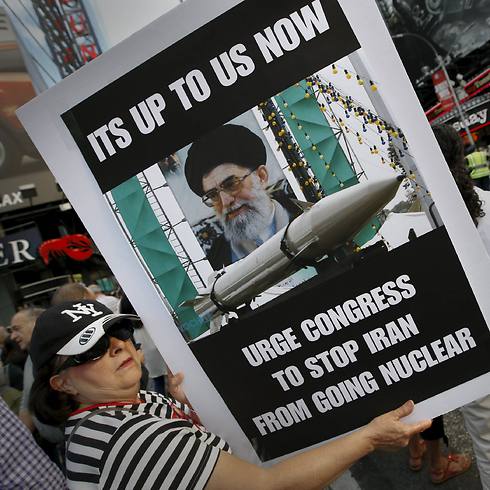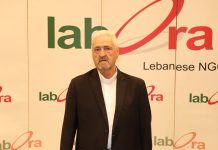How can Gulf diplomatic relations be resumed with Iran?
Najat AlSaied/Al Arabiya/January 15/16
The latest outrage emanating from the Iranian government over Saudi Arabia’s decision to execute Saudi Shiite preacher Nimr al-Nimr, and the burning of the Saudi Embassy and the Consulate in Iran, prove it has not changed its revolutionary approach and it has not matured into a respectable government.
The recent burning of the Saudi Embassy reminds us of the attack on the U.S. Embassy in Tehran in 1979. It is as if history is static and nothing has changed. Its attitude remains the same and it still rules through intimidation. The region has become unstable and has been engulfed by sectarianism and violence since the Khomeini revolution in 1979. The question now is; when should diplomatic ties be re-established with this irresponsible regime? The West, and mainly the U.S., are obviously using the nuclear deal to change the balance of power in the region by empowering Iran to police it. The outrage and demonstrations stirred up by Iran after the execution of Nimr are ridiculous and ironic. Iran has the highest rate of executions in the region, according to the latest Amnesty International report, and it does not have the right to criticize Saudi Arabia. Saudi Arabia’s Deputy Crown Prince Mohammad Bin Salman, who is also the country’s Defense Minister, expressed his surprise over the reaction in an interview with The Economist. “A Saudi citizen commits a crime in Saudi Arabia, and a decision is made on the case by a Saudi court; what does Iran have to do with it? If this proves anything, it’s that Iran is keen on extending its influence over other countries in the region.”
Saudi Arabia never interferes in Iran’s internal affairs regardless of the thousands they execute, many of whom are Sunnis. Many had hoped that Iran’s conduct would be much better after the reformer, Hassan Rowhani, came to power as president, taking over from the hardliner, Mahmoud Ahmadinejad. But in fact nothing has changed; on the contrary things have worsened. It is not enough that the embassy and consulate were burned, but a street was named after Nimr. Such actions remind us of when one of Tehran’s streets was named Khalid Islambouli, the terrorist who assassinated Anwar Sadat, the third president of Egypt, in 1981. This aggressive meddling illustrates that Iran’s hardliners, including the supreme leader, have agreed on the nuclear deal only to use the money to serve their program of expansion in the region. Everything that is happening, from their domination of the region to their attack on the Saudi Embassy, indicate that more interventions are on the horizon and there is no distinction between Iran’s hardliners and its reformers.
Policing the balance of power
The West, and mainly the U.S., are obviously using the nuclear deal to change the balance of power in the region by empowering Iran to police it. This is reflected in global as well as American media. It is really puzzling that the media focuses on the outrage of Iran over the execution of Al Nimr but does not question why Iran is interfering in the internal matters of another country. There were 47 terrorists executed alongside Al Nimr, but there is no mention of them in the media. The sole focus on him specifically is not only strange, but serves to fan the flames of sectarianism in the region.
The Obama administration’s attitude has been awkward since the beginning of the uprising in the region. For example, even though Obama abandoned the Iranian people in their Green Revolution in 2009 because he did not want to “meddle in Iran’s internal affairs”, he meddled in Egyptian internal affairs in 2011. He called then president Hosni Mubarak, a U.S. ally for 30 years, and told him that reform and change had to begin “now”, which is the exact opposite of his stance towards the Iranian regime. This abandonment of Arab allies in such a humiliating manner and at the same time the support to the Islamists at the expense of liberals, minorities, women and the youth have shaken the trust of those Arab leaders and people towards the U.S.. The Obama administration is sending confused signals to Arab countries. Some of them indicate that the U.S. is working against them while others suggest it is withdrawing from the region and weakening its ties there.
Conditions
The U.S. and the West, before encouraging Saudi Arabia and other Arab countries to make peace with Iran, have to stop Iran from interfering in Arab countries’ internal issues. They must also respect diplomatic missions. It is abundantly clear that this revolutionary regime does not want to mature into a respectable government respecting other countries’ sovereignty. It is insisting on exporting its revolution to neighboring countries and it is very keen to dominate the region. It has destabilized the region by supporting militias and insurgent groups in Arab countries. Instability is promoted by this regime even during the Hajj through politicizing it and spreading chaos. This regime exploits every opportunity to criticize Saudi Arabia in its management of the hajj, while it fails to manage its own diplomatic missions. As a result, a simple apology to Saudi Arabia will not solve these tensions because the problem is systemic.
The return of diplomatic ties should be made on several conditions. The Iranian regime must stop interfering with other Arab countries’ domestic affairs. This can be achieved by signing a treaty that states that all funding and support of militias, such as Hezbollah, and insurgent groups in Arab countries, must cease immediately. Once the regime agrees to these conditions then we can start to talk about resuming diplomatic ties. Re-establishing ties without such pre-conditions would be seen naive at best.
Boat drama: Did Iran toy with the U.S. and the world?
Dr. Majid Rafizadeh/Al Arabiya/January 15/16
Iran seized two U.S. navy ships and their 10 sailors, who were released in less than 24 hours. A few weeks prior, Tehran provoked the U.S. navy by firing unguided rockets and ballistic missiles nearby. Now Iran is being treated as a hero by the U.S. government for releasing the sailors. Secretary of State John Kerry thanked the Iranians “for their cooperation in swiftly resolving this matter,” and referred to the nuclear deal as the reason for this immediate resolution and change in Iran’s behavior. The administration of President Barack Obama now has more leverage over Congress to lift sanctions against Iran in a few days. The administration can tell Congress that if it were not for the nuclear deal, Tehran would not have released the Americans. The naval drama was a win-win scenario for Iran’s hardliners and moderates, as well as the Obama administration. The naval drama was a win-win scenario for Iran’s hardliners and moderates, as well as the Obama administration. It allowed Tehran to appear reasonable in the eyes of the international community. It also drew attention away from other critical issues that were potentially postponing implementation of the nuclear deal. For example, Iran’s recent actions regarding its ballistic arsenal cast doubt on its intentions and spurred concerns in the U.S. Congress. President Hassan Rowhani ordered the expansion of the missile program, and Iran’s Revolutionary Guard Corps (IRGC) tested ballistic missiles several times after the nuclear accord was reached. Weeks ago, Iran fired several unguided rockets close to the aircraft carrier USS Harry S Truman in the Straits of Hormuz. Navy spokesman Kevin Stephens said this was “unsafe, unprofessional and inconsistent with international maritime law.” Other ongoing issues include the cases of Iranian-Americans imprisoned in Iran. There has been considerable pressure on Washington to urge Tehran to release them before the lifting of sanctions.
Hardliners
Iranian hardliners are concerned that the nuclear deal and growing ties with the United States send the wrong message to their youth. Their latest actions, including the seizure of the ships, are meant as a reminder that they are still in control, and that the nuclear deal does not mean infiltration of American culture. Keeping Iran isolated makes it easier for hardliners to maintain control. They showed a video of an American sailor apologizing to Iran on state media, to highlight that they are not weakened by the nuclear deal. In the United States, the only obstacle to lifting sanctions is Congress, not Obama. Congress was pushing for new sanctions on Iran for defying the U.N. Security Council by testing ballistic missiles. By seizing American sailors, the hardliners sent a message to those they call “troublemakers in the U.S. Congress” that if they create problems, Tehran can endanger U.S. national security and regional interests.
Iranian moderates and the Obama administration also scored political points by showing the success of diplomacy. Iran’s Supreme Leader Ali Khamenei and the IRGC released the American sailors immediately as they need the anticipated influx of cash coming from sanctions relief.




















